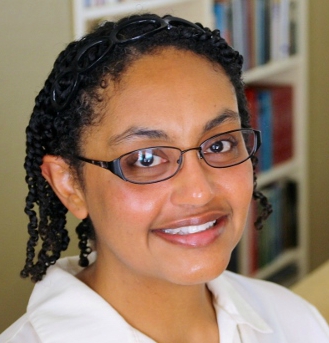
Markus Spiske / Unsplash
Alone or with a partner, consider:
Do you ever feel too worried or busy with your own needs to make the time or effort to care for others? If so, what factors brought you to that point?
What would the world be like if everyone only took care of themselves without concern for the needs and feelings of others?
As you read about different social concerns and needs in this article, consider:
Does this problem affect me now?
Does it affect people who I know and, if so, does that affect me?
Could it affect me someday?
To be 'woke' is to be aware of what is inside and out
Several months ago, I started noticing people using the word 'woke" in a way that I was not familiar. Statements similar to, "Stay woke," "'I'm woke," "She's woke and not going back" started showing up on social media. And while I gathered a meaning from the context clues, I didn’t understand the full meaning until more recently.
To be "woke" is to be aware — to be in a state of attention — essentially to have one's eyes open to reality. From what I've seen, it is used most often in contexts involving social injustices such as racism and classism. To be woke is to notice nuances, micro-aggressions, and underpinnings of prejudice and injustice in all situations. And, as a famous cliché states, "Once you see something, you can't un-see it."
Given today's political and social climate, especially in the United States, it is difficult for me to understand how people can remain naïve to the injustices that pervade our lives. I don't know why everyone isn't woke. Perhaps it is because people who are not personally affected by social injustices can more easily ignore them. Somewhat like the Martin Niemöller quote:
First they came for the Socialists, and I did not speak out —
Because I was not a Socialist.Then they came for the Trade Unionists, and I did not speak out —
Because I was not a Trade Unionist.Then they came for the Jews, and I did not speak out —
Because I was not a Jew.Then they came for me — and there was no one left to speak for me.
So wrapped up in ourselves, our problems, our issues, our circumstances, we sometimes cannot find room in ourselves to do something about a situation affecting others if it does not have a direct impact on us.
Perhaps, those who are woke are unable to communicate effectively the desperate situation in which our culture finds itself. Words fall on deaf ears. Demonstrations and protests have little ability to move people. It seems that folks are inundated with news, sound bites, video clips — in such a way that as a culture we are numb or unable to be affected by what we see and hear.
Maybe we, people of faith, have not done a very good job demonstrating the interconnectedness of all life and the importance of interdependence. Perhaps we have not been very good examples of dialogue, the preferential option for the poor and marginalized, and how caring for others results in care for self. It could be the case that we have not been compelling enough. Or it could be that we, as people of faith, are not woke at all.
And so, what are we to do? How are we to respond to the vitriolic political climate? To the hateful and disrespectful rhetoric that surrounds us each day?
Recently, a women's faith sharing group to which I belong read The Naked Now by Richard Rohr. In a chapter entitled "The Principle of Likeness," Rohr expounds on an idea attributed to Mahatma Gandhi. Gandhi's idea is that we must, "be the change we wish to see in the world." Rohr fleshes out this idea with 11 points:
• If you want others to be more loving, choose to love first.
• If you want a reconciled outer world, reconcile your own inner world.
• If you are working for peace out there, create it inside as well.
• If you notice other people's irritability, let go of your own.
• If you wish to find some outer stillness, find it within yourself.
• If you are working for justice, treat yourself justly, too.
• If you find yourself resenting the faults of others, stop resenting your own.
• If the world seems desperate, let go of your own despair.
• If you want a just world, start being just in small ways yourself.
• If your situation feels hopeless, honor the one spot of hope inside you.
• If you want to find God, then honor God within you, and you will always see God beyond you. For it is only God in you who knows where and how to look for God.
Blessed William Joseph Chaminade, one of the Founders of the Marianist Family, once said that the essential is the interior. It is what is within us that makes for change. We have to pay attention. We cannot build peace from a place of violence in our own hearts. We cannot create just systems from a place of hatred. We cannot effectively address issues of racism, xenophobia and classism from places of bias and prejudice.
Essentially, it is not enough to be woke to the realities around us. We must also be woke to the realities within us. And then we will know better how to respond.
-
Consider the 11 points that Sr. Trahan shares from Richard Rohr's writing. Which of these seems easiest for you? Which would be the most challenging?
-
Considering all the pain, injustice and nastiness to be fixed out there in the world, why is it important to look within ourselves first?
-
Identify someone you consider to be woke to racism or other injustices. How do you think they become aware and involved?
Jesus gave his disciples a clear sense of what it means to be woke:
"When the Son of Man comes in his glory, and all the angels with him, he will sit upon his glorious throne, and all the nations will be assembled before him. And he will separate them one from another, as a shepherd separates the sheep from the goats. He will place the sheep on his right and the goats on his left. Then the king will say to those on his right, 'Come, you who are blessed by my Father. Inherit the kingdom prepared for you from the foundation of the world. For I was hungry and you gave me food, I was thirsty and you gave me drink, a stranger and you welcomed me, naked and you clothed me, ill and you cared for me, in prison and you visited me.' Then the righteous will answer him and say, 'Lord, when did we see you hungry and feed you, or thirsty and give you drink? When did we see you a stranger and welcome you, or naked and clothe you? When did we see you ill or in prison, and visit you?' And the king will say to them in reply, 'Amen, I say to you, whatever you did for one of these least brothers of mine, you did for me.'"
-
Jesus describes a half-dozen concerns that affected people who his followers had the opportunity to help. This was not a complete list of human needs then, nor is it today. Identify six current challenges that people struggle with and how we might respond. Phrase your response like this: "Lord, when were you ________ and I ________ you?"
-
Consider your own spiritual and physical needs – not material wants such as technology or fashions, but inner needs for healing, hope or growth. Lift up a silent prayer in this simple way: “Lord, I am _________, please give me ______.”
In their 2018 pastoral letter on racism, the U.S. Catholic bishops noted that racism has no place in the Christian heart. They wrote:
"What is needed, and what we are calling for, is a genuine conversion of heart, a conversion that will compel change, and the reform of our institutions and society. Conversion is a long road to travel for the individual. Moving our nation to a full realization of the promise of liberty, equality, and justice for all is even more challenging. However, in Christ we can find the strength and the grace necessary to make that journey."
From "Open Wide Our Hearts: The Enduring Call to Love."
The bishops say that the path to justice for all begins with a person’s individual change of heart. Diagnose your own heart regarding racism.
-
Would you describe your condition as hardened, numb, irritated, anxious or pumping with hope?
-
What prescription would you give yourself?
Sr. Trahan’s congregation, the Marianist Sisters, is part of the Marianist Social Justice Collaborative. In 2016, that group’s Racial and Immigrant Justice Team produced a statement on racism in politics in response to concerns about that year’s presidential campaign. In it, Marianists encourage voters to identify and oppose racist statements from political candidates. Their guidance is timeless and helpful for future elections. Check out their statement and keep it in mind when you have the opportunity to vote.
Martin Niemöller was not a socialist or a trade unionist or a Jew. He was an outspoken Lutheran pastor who spoke out against the complicity of Christian leaders with Nazis during the Holocaust. He was convicted for treason and was imprisoned in concentration camps.
After the World War II ended, he spoke frequently around the world to express guilt for the millions who died in the Holocaust and to promote peace. During his speeches, he often expanded his famous quote, featured in the article, to include Catholics, Communists and others who suffered and died at the hands of the Nazis.
Think about groups of people that face persecution and oppression today. Who faces the loss of their dignity, and possibly their lives, due to the prejudice of powerful, hateful people? Who needs someone to courageously speak for them? As Niemöller himself did, update his quotation with those groups’ names to inspire you to resist racism and hatred in your lifetime.
Awaken me, Lord, to the goodness within me and around me.
Help me discover peace and hope in me – gifts that might get lost sometimes amid the clutter and turmoil of my thoughts.
Ultimately, God, help me find you within my heart, so that I might help change hearts in our world.
Amen.
Tell us what you think about this resource, or give us ideas for other resources you'd like to see, by contacting us at education@globalsistersreport.org
